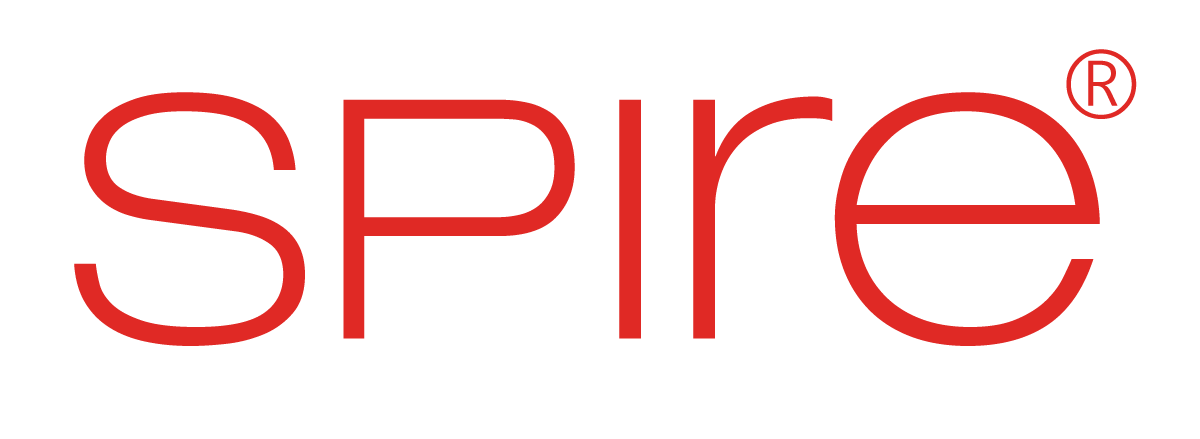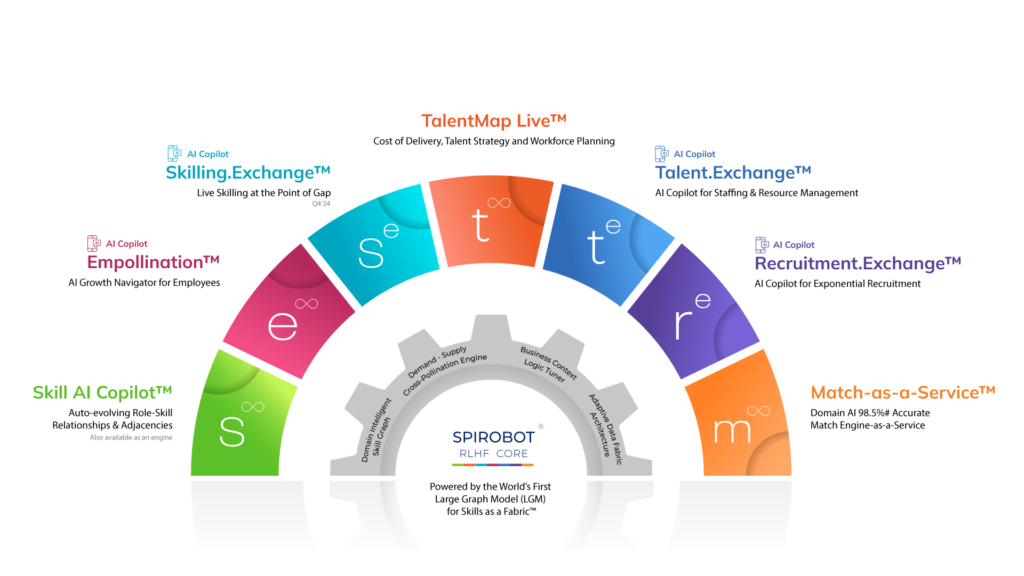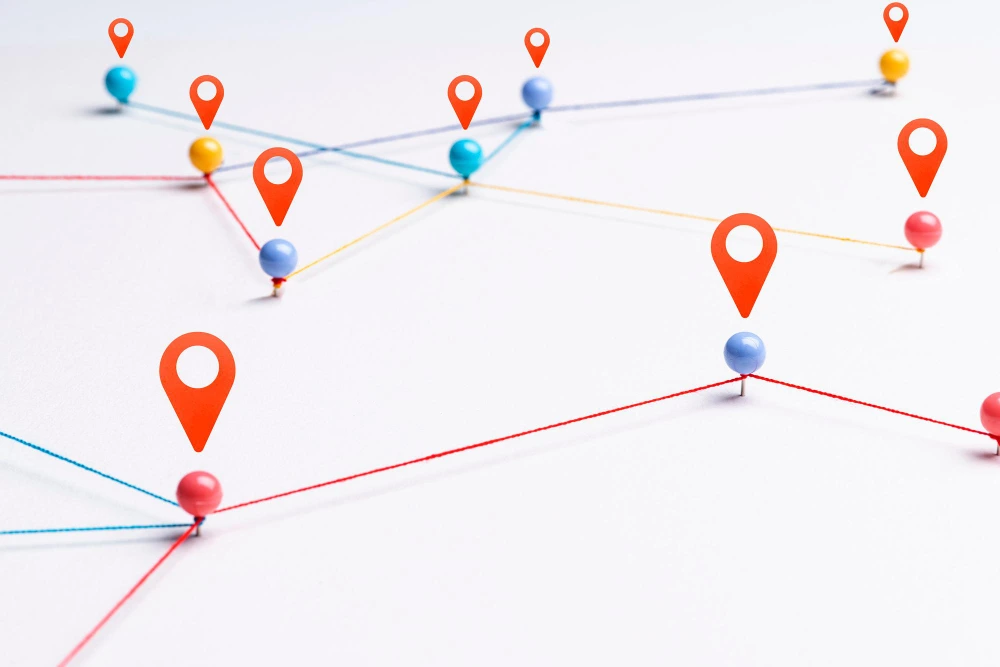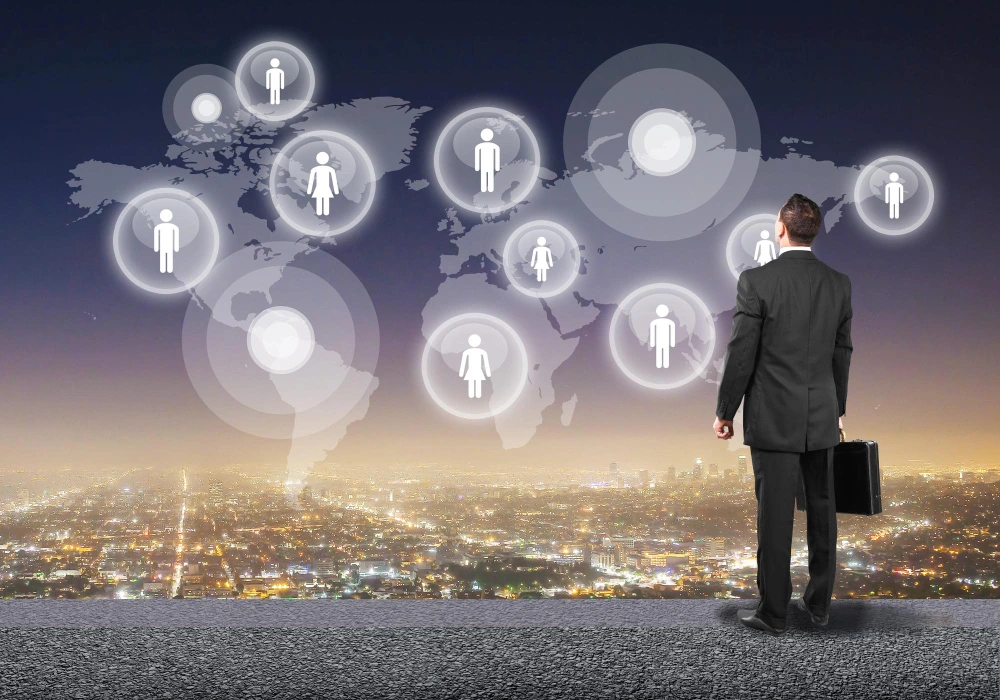The landscape of work is undergoing a significant transformation. Gone are the days of one-size-fits-all approaches to employee experience. Today’s workforce demands a more personalized and engaging experience, with opportunities for continuous learning and development at the forefront. This is where Artificial Intelligence (AI) steps in, revolutionizing the employee experience by tailoring development programs to individual needs and skill sets.
What is Employee Experience and Why Does it Matter?
Employee experience refers to the sum of all interactions and touchpoints an employee has with their company, from onboarding to retirement. A positive employee experience is crucial for attracting and retaining top talent, boosting engagement and productivity, and fostering a thriving work environment. When employees feel valued, supported, and empowered to grow, they are more likely to stay with the company and contribute their best work.
Employee experience refers to the sum of all interactions and touchpoints an employee has with their company, from onboarding to retirement.
How to Improve the Employee Experience
There are several ways to improve the employee experience, with a focus on personalization being key. Here are a few effective strategies:
- Provide Opportunities for Growth and Development: Employees at all levels crave opportunities to learn and develop new skills. Offering relevant training programs, mentorship opportunities, and tuition reimbursement demonstrates a commitment to employee growth and fosters a culture of continuous learning.
- Offer Flexibility and Work-Life Balance: In today’s fast-paced world, employees value flexibility in their work schedules and arrangements. This could include remote work options, compressed workweeks, or flexible start and end times.
- Recognize and Reward Achievements: Employees thrive on recognition. Regularly acknowledging and celebrating accomplishments, both big and small, boosts morale and motivates employees.
- Foster a Culture of Open Communication: A culture of open communication allows employees to feel heard and valued. Encourage regular feedback sessions, create open communication channels, and actively listen to employee concerns.
The Power of AI in Personalizing Development Programs
Traditionally, development programs have been a “one-size-fits-all” approach. This often leaves employees feeling disengaged and fails to address their individual needs. AI offers a powerful solution by personalizing development programs based on individual skill profiles.
Here’s how AI personalizes learning and development:
– Identifying Skill Gaps
– Recommending Personalized Learning Paths
– Adaptive Learning
Here’s how AI personalizes learning and development:
- Identifying Skill Gaps: AI can analyze vast amounts of data, including performance reviews, resumes, and internal project documents, to identify an employee’s strengths and weaknesses. This allows for a more accurate assessment of skill gaps and development needs.
- Recommending Personalized Learning Paths: Based on an employee’s skill profile, AI can recommend a personalized learning path with specific courses, training programs, and resources. This ensures that employees are focusing on learning that is relevant to their current role and career aspirations.
- Adaptive Learning: AI-powered learning platforms can adapt to an employee’s learning style and pace. This could include offering different learning formats (e.g., video lectures, interactive modules, gamification) and adjusting the difficulty level based on the employee’s progress.
Benefits of Personalized Development Programs
Personalizing development programs with AI unlocks a treasure trove of benefits for both employees and organizations. Let’s delve deeper into how AI achieves these positive outcomes:
Increased Employee Engagement: Traditional, one-size-fits-all training programs often leave employees feeling disengaged and bored. AI personalizes the learning experience by catering to individual needs and preferences. Imagine an employee receiving a curated learning path that aligns with their current role, career aspirations, and even preferred learning style (e.g., visual, auditory, kinesthetic). This relevancy makes learning more engaging and fosters a sense of ownership over professional development. Employees who feel their learning journeys are personalized are more likely to be motivated and invested in their own growth.
Improved Skill Development: AI excels at identifying skill gaps through data analysis of performance reviews, resumes, and project documents. This allows for targeted development programs that address specific skill deficiencies. Instead of generic training that may not be relevant to an employee’s role, AI tailors learning to the exact skills needed for success. This laser focus ensures employees are developing the right competencies to excel in their current and future positions.
Enhanced Performance: Equipping employees with the right skills and knowledge directly translates to improved performance. By addressing specific skill gaps and focusing on relevant development opportunities, AI ensures employees are equipped to tackle their work effectively. This leads to increased productivity, better decision-making, and a more competent workforce overall. Furthermore, personalized development fosters a culture of continuous learning, which encourages employees to stay up-to-date with the latest industry trends and best practices, keeping the organization at the forefront of innovation.
Reduced Turnover: Investing in employee development through personalized programs demonstrates a company’s commitment to its workforce. Employees who feel valued and supported in their growth are more likely to be satisfied and engaged in their work, leading to lower turnover rates. Reduced turnover translates into significant cost savings for organizations, as recruiting and onboarding new employees can be a time-consuming and expensive process. Additionally, with a more stable workforce, organizations can benefit from increased institutional knowledge and improved team dynamics.
Beyond the Basics: Unlocking Additional Benefits
AI’s power in personalizing development programs extends beyond the core benefits mentioned above. Here are a few additional advantages:
- Increased Efficiency: AI streamlines the development process by automating tasks like needs assessment, course recommendations, and progress tracking. This frees up valuable time for HR professionals and managers to focus on more strategic initiatives.
- Improved Learning Retention: Personalized learning caters to individual learning styles and preferences, leading to better information retention and knowledge application.
- Boosted Innovation: By fostering a culture of continuous learning and upskilling, AI empowers employees to think creatively and develop innovative solutions to challenges.
- Enhanced Employer Brand: A company that prioritizes personalized development programs signals its commitment to employee growth. This can attract top talent seeking employers who invest in their future.
By harnessing the power of AI to personalize development programs, organizations can create a win-win situation for both employees and themselves. Employees benefit from a more engaging and enriching learning experience that fuels their professional growth, while organizations reap the rewards of a more skilled, engaged, and innovative workforce.
Spire.AI: Helping Organizations Personalize the Employee Experience
Spire.AI is a leading provider of AI-powered talent management solutions that help organizations personalize the employee experience. Here’s how Spire.AI specifically aids companies in this endeavor:
- Automatic AI-generated Employee Skill Profiles: Spire.AI utilizes its AI capabilities to analyze unstructured data from various sources and generate comprehensive skill profiles for employees. This eliminates the need for manual data entry and provides a more accurate picture of an employee’s skill set.
- Career Path Simulation and Reskilling Recommendations: Spire.AI goes beyond basic skill identification. It can recommend specific upskilling or reskilling opportunities based on an employee’s aspirations, available internal opportunities, or alignment with the company’s strategic growth direction. This empowers employees to take ownership of their careers and chart a clear path for advancement.
- Talent Marketplace (AI-assisted Internal Demand-Supply Management): Spire.AI facilitates internal mobility by creating a Talent Marketplace. This platform connects employees with suitable internal opportunities based on their skill sets and career goals. This not only enhances employee engagement but also helps organizations fill open positions quickly and efficiently.
By utilizing Spire.AI’s comprehensive talent management solutions, organizations can achieve significant improvements in the employee experience. Here are some real-world examples:
One client reported a jump from 21% to 56% in internal promotions after implementing Spire.AI Talent Marketplace
- Increased Internal Mobility: Spire.AI boasts a proven track record of increasing internal mobility rates. One client reported a jump from 21% to 56% in internal promotions after implementing Spire.AI Talent Marketplace, demonstrating the platform’s effectiveness in connecting employees with relevant opportunities within the company.
- Empowering Employees for Growth: By providing personalized learning paths and career development recommendations, Spire.AI empowers employees to take ownership of their professional journeys. This fosters a culture of continuous learning and development, leading to a more engaged and motivated workforce.
- Improved Business Outcomes: Ultimately, a positive employee experience translates into improved business outcomes. Organizations that invest in personalized development programs see benefits such as increased productivity, innovation, and customer satisfaction.
The Future of the Employee Experience with AI
AI’s impact on the employee experience is still in its early stages, but the potential for transformation is vast. Here’s a glimpse into what the future holds:
Micro-learning and Personalized Learning Journeys: Gone will be the days of lengthy, one-size-fits-all training programs. AI will enable the creation of bite-sized, personalized learning modules that cater to individual learning styles and schedules. Imagine an employee receiving micro-learning prompts and recommendations throughout the workday, tailored to their specific role and immediate needs. This just-in-time learning approach will be more engaging and effective, leading to better knowledge retention.
AI-powered Coaching and Mentorship: AI can become a virtual coach or mentor, providing employees with personalized feedback and guidance. Imagine an AI system analyzing an employee’s performance data and offering targeted coaching suggestions to improve specific skills. This could be through automated feedback loops, personalized recommendations for learning resources, or even connecting the employee with a human mentor who can provide additional support.
Predictive Talent Management: AI can analyze vast amounts of employee data to predict future performance, potential for burnout, and even flight risk. This allows organizations to proactively address employee needs and create personalized interventions. For example, AI might identify an employee at risk of burnout and recommend adjustments to their workload or suggest wellness resources. Similarly, AI could predict an employee’s potential for success in a specific role, allowing for targeted development programs and career path guidance.
Building a Culture of Continuous Feedback: AI can facilitate a culture of continuous feedback by automating the process and providing real-time insights. Imagine employees receiving regular feedback from both peers and AI systems, highlighting areas of strength and opportunities for improvement. This ongoing feedback loop would foster a growth mindset and empower employees to continuously learn and develop.
Building Diverse and Inclusive Workplaces: AI can help combat unconscious bias in recruitment, promotion, and development opportunities. By analyzing data objectively, AI can identify hidden biases and ensure a fair and inclusive employee experience for everyone.
The Human-Machine Partnership: While AI will play a significant role in shaping the future of employee experience, it’s important to remember that it won’t replace human interaction entirely. AI will likely function best as a partner to HR professionals and managers, providing them with data-driven insights to personalize the employee experience and create a more supportive work environment.
The future of the employee experience with AI is bright. By leveraging AI responsibly and ethically, organizations can create personalized, engaging, and rewarding work environments that empower employees to thrive.
Conclusion
The employee experience is no longer a choice but a critical factor for attracting and retaining top talent. By leveraging AI, organizations can personalize development programs, address individual needs, and empower employees to reach their full potential. This results in a more engaged workforce, improved business outcomes, and a competitive edge in today’s dynamic job market. As AI continues to evolve, the possibilities for personalizing the employee experience are endless, paving the way for a more fulfilling and rewarding work environment for all.






